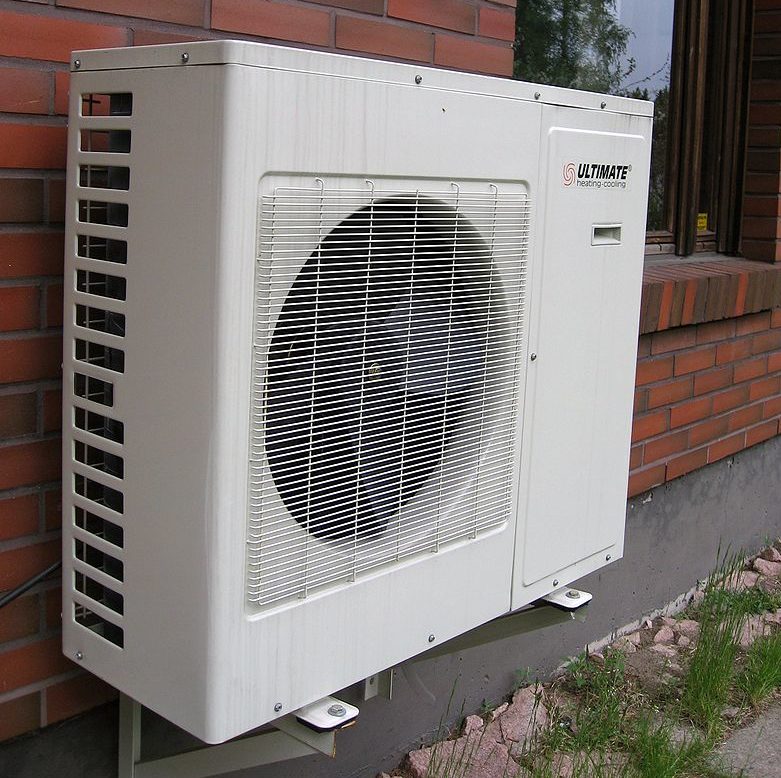A group of scientists from the University of Maryland, College Park, the University of Rhode Island, and the Carnegie Mellon University, in the United States, has estimated how the deployment of an air source heat pump may increase house values across 23 states and has found that buyers are ready to pay a price premium of between 4.3 and 7.1% if a similar system for space heating is part of the property for sale.
The researchers utilized the difference-in-differences approach, which compares the changes in outcomes over time between a population enrolled in a program – the, so-called treatment group – and a population that is not: the, so-called comparison group. They also used data from the Zillow Transaction and Assessment Database (ZTRAX), which is an open-access real estate database for academic, non-profit, and policy researchers. “Based on the heat pump installation dates, we categorized the transaction prices as pre or post-treatment prices,” they explained. “The control group consists of the houses using the same types of heating and cooling systems, other than heat pumps, across all the assessments, and sold at least twice during a similar data window.”
According to their findings, the estimated price premiums would be larger than the heat pump installation costs of heat pumps and the calculated total social benefits of switching to heat pumps. The premiums, however, would also depend on the region and the demographic groups. “We examined the heterogeneity of the price premium by investigating the correlation of the price premium with several other important factors, including residents’ environmental awareness at the county level; air source heat pump adoption rate at the county level; personal income per capita at the county level; [and] average annual heating degree days (HDD) [a measure of the volume of energy required to heat a building], and annual cooling degree days, from 1981 to 2010, at the meteorological station level,” the U.S. group emphasized.
Through this analysis, the academics came to the conclusion that residents that are environmentally conscious, middle class, or live in regions with a mild climate are most likely to pay the higher price premium for a house equipped with an air source heat pump. In regions where the heat pump penetration rate is larger, however, the price premium is lower, which the scientists attributed to lower installations costs, as well as lower information searching and transaction costs.
The price premium is estimated between $10,400 and $17,000 per transaction and the average cost for installing an air source heat pump is around $8,000. “The relatively high price premium (compared with the installation cost) can be explained by the transaction cost, information searching cost and cognitive cost,” the scientists highlighted. “In an equilibrium resale market, the house price premium approximates the sum of the installation cost, transaction cost, information searching cost and cognitive cost.” Cognitive costs relate to the need for consumers to gain an understanding of new technology and its financial aspects.
The findings of the research can be found in the paper Estimation of change in house sales prices in the United States after heat pump adoption, published in nature energy.
Other researchers at the University of Rhode Island have also recently analyzed how solar parks affect the value of nearby houses. They found that U.S. homeowners are prepared to pay $279 per year to avoid living within a mile of a solar plant.
This content is protected by copyright and may not be reused. If you want to cooperate with us and would like to reuse some of our content, please contact: editors@pv-magazine.com.




This is a really misleading headline. The headline says in effect: “Heat pumps make houses more expensive”. A bad thing. The body of the article says in effect “heat pumps make houses more valuable”. A good thing.
I wonder why I am seeing so many negative heat pump articles lately. Surely not the natural gas industry? Say it isn’t so!
Hello John,
thanks for your comment. I don’t see a big difference between “more expensive” and “more valuable.” The researchers themselves speak about prices. “Residences with an air source heat pump enjoy a 4.3–7.1% (or US$10,400–17,000) price premium on average,” they say in the paper, and I don’t see any negative connotation in this.
I must admit I read this as an anti-heat pump headline too.
Heat pumps add value to a building because they save operational costs.
As for Solar parks…. Has there been organised scare campaigns by fossil fuel lobbies or their politician lackies?
I’d happily five within 50 metres of a solar farm. At least I could be confident that my electrons were mostly coming from a clean energy source.